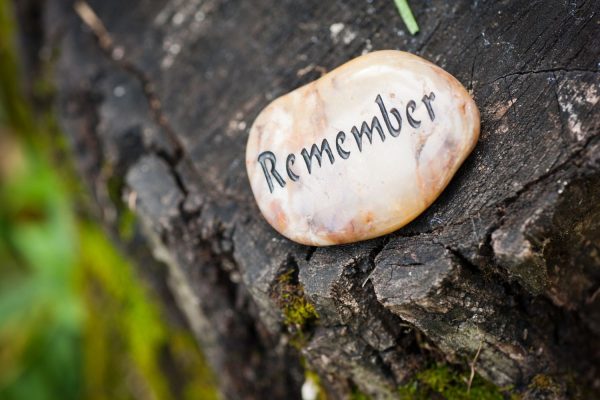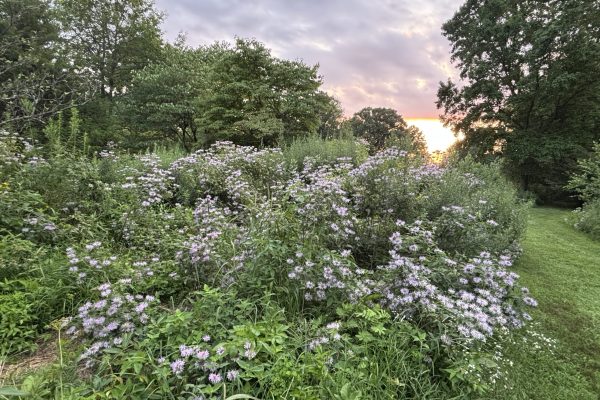Based loosely on Tefillat ha-Geshem (the prayer for rain) and other traditional liturgical texts, this Jewish prayer for the Southwest Monsoon in the United States responds to the seeming recent decline of the meteorological phenomenon typically responsible for 30–40% (and in some cases more) of this region’s annual precipitation. It also draws directly upon Parashat Hukat, as this pericope engages directly with the difficulties of obtaining water in the desert and is typically chanted around the time of the monsoon’s onset in late June or July.
Reader:
Today we do not thirst:
Canal and pipe flow forever full, in morning sun sparkle backyard pools.
But from no cistern can the cactus sip, for Ponderosa Pine no faucet drips,
Since drought has dried soil and spring, and flora and fauna pine for drink.
And as we behold the parched landscape, can we not but meditate
and think:
That our desires and demands have brought us to the brink?
So let us call upon the One, who once declared,
“Seedtime and harvest / Cold and heat,
Summer and winter / Shall not cease,”
To rewind the winds that have woefully waned
Restoring Sonoran summers’s evening rains.
And on this Shabbat Ḥukat / to renew the Monsoon as ḥukah.
Reader and Congregation:
Meshiv u-mashiv ha-ruakh, u-morid gishmei malkosh
Cause the wind to return and blow, the monsoon rains to fall below
Reader:
Remember our prophetess, the singer at the sea, the woman of the well.
How upon her death in the desert, the waters waned.
And forgive the failing, the Israelites’ passing over her passing;
Thirty days long they mourned her brothers, their sister not one.
Reader and Congregation:
Meshiv u-mashiv ha-ruakh, u-morid gishmei malkosh
Cause the wind to return and blow, the monsoon rains to fall below
Reader:
Remember rod and rock, how they released a river,
relieving and refreshing man and beast.
And forgive our shepherd’s striking instead of speaking, our gulping instead of drinking; how the site of sanctification submerged in quarrel.
Reader and Congregation:
Meshiv u-mashiv ha-ruakh u-morid gishmei malkosh
Cause the wind to return and blow, the monsoon rains to fall below
Reader:
Remember how when God assembled the people, that they might drink,
Then Israel sang to the well, summoning its waters to rise anew.
And forgive the motive for their chant: the crushed arms and legs of enemy troops, washed away from Wadi Arnon’s caves.
Reader and Congregation:
Meshiv u-mashiv ha-ruakh, u-morid gishmei malkosh
Cause the wind to return and blow, the monsoon rains to fall below
Reader:
Remember the queen, thanks to whose wise and steady reign,
rains every Sabbath fell, expanding barley, lentil, and grain.
And forgive the voices that have silenced her name,
voided her legacy and foiled her fame.
Reader and Congregation:
Meshiv u-mashiv ha-ruakh, u-morid gishmei malkosh
Cause the wind to return and blow, the monsoon rains to fall below
Reader:
Remember the fallen Hopi fighter, first of her kind. Though desert-born and desert-dead, pools of water accompanied her every step.
And forgive the oppression that troubled her tribe and our foolish venture that cost her life.
Reader and Congregation:
Meshiv u-mashiv ha-ruakh, u-morid gishmei malkosh
Cause the wind to return and blow, the monsoon rains to fall below
Reader:
Remember the rounder of rounds, the repairer of roofs, whose will You fulfilled, bringing benevolence, blessing, and bounty to our land.
And forgive the impertinence that brought first drizzle, thereafter flood,
to grant instead rains in due measure from above.
Reader and Congregation:
Meshiv u-mashiv ha-ruakh, u-morid gishmei malkosh,
la-midbar ule-har, la-rekhes ule-emek
Cause the wind to return and blow, the monsoon rains to fall below,
upon desert and mountain, ridge and valley.
Reader:
Ve-nir’eh kol YHVH ḥotzev lahavot esh, ve-nishmah kol YHVH yakhil midbar.
Nariaḥ et bosem ha-Creosote sheha-geshem mevaser,
Ve-nirkod be-z’rimat ha-mabul, et avirenu metaher.
Congregation:
And we shall see the voice of God forming fiery flames,
And hear the voice of God shaking the desert.
We shall smell the Creosote’s fragrance heralding rain,
And we shall dance amid the downpour’s descent, purifying our air.
Reader:
La-rotev velo la-yavesh!
La-maleh velo la-reyk!
La-firyah velo la-shmamah!
Congregation:
For wetness and not for dryness!
For fullness and not for emptiness!
For flourishing and not for barrenness!
Reader:
Ana, YHVH, hadesh meimeinu ke-kedem!
Congregation:
Ana, YHVH, restore our waters as before!
Reader:
Ana, YHVH, hadesh meimeinu ke-kedem!











